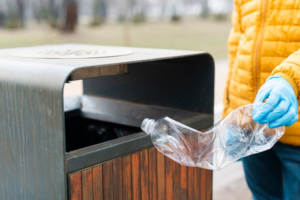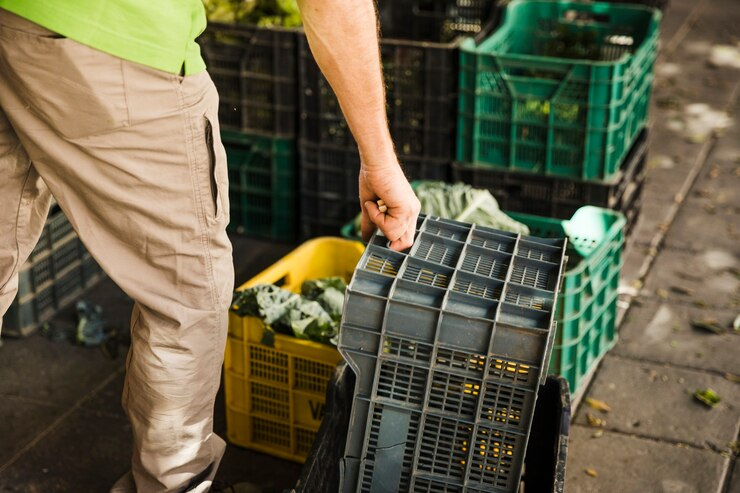In the cutting-edge generation, urbanization has led to the rapid enlargement of towns, making the management of waste an increasingly complex mission. As cities grow, so does the volume of waste generated with the aid of their population. To address these challenges, smart metropolis tasks have been brought, leveraging current Residential Garbage Collection TECHNOLOGY to streamline and enhance the performance of waste control structures. These technological advancements now not simplest make waste series extra efficient but also make a contribution to environmental sustainability and progressed fine of life for city citizens.
The Evolution of Residential Garbage Collection Technology
Historically, residential rubbish series turned into a hard work-extensive system, depending closely on guide exertions and rudimentary gadget. Traditional techniques often concerned fixed schedules for waste series, main to inefficiencies such as overlooked pickups or unnecessary collections while packing containers were not complete. Over time, technological innovations have revolutionized this zone, introducing smart solutions that optimize the complete waste management manner.
Internet of Things (IoT) and Smart Bins
One of the maximum vast advancements in Residential Garbage Collection TECHNOLOGY is the mixing of the Internet of Things (IoT) into waste control structures. Smart containers geared up with IoT sensors can reveal the fill ranges of waste boxes in actual-time. These sensors speak statistics to a primary machine, permitting waste management companies to music which boxes need emptying and when.
By imposing clever boxes, towns can shift from constant waste series schedules to dynamic, call for-pushed schedules. This optimization reduces pointless collections, saving gas and decreasing carbon emissions. Moreover, clever packing containers can hit upon and record issues consisting of overfilling, bin harm, or contamination, ensuring spark off decision and retaining the cleanliness of city regions.
GPS and Route Optimization
Another crucial technological advancement is the use of GPS and direction optimization software program. Traditional waste series routes had been regularly predetermined and did no longer account for real-time visitors conditions or modifications in waste era styles. With GPS technology, waste collection motors can navigate greater efficaciously, averting traffic congestion and minimizing travel time.
Route optimization software program similarly complements efficiency by means of dynamically making plans the maximum efficient routes based on actual-time facts from smart bins. This no longer simplest reduces gas consumption and operational fees but also ensures timely waste series, improving universal service best.
Artificial Intelligence and Machine Learning
Artificial Intelligence (AI) and Machine Learning (ML) have moreover made enormous contributions to the development of Residential Garbage Collection TECHNOLOGY. AI algorithms can examine facts from numerous assets, together with IoT sensors, GPS structures, and historic waste collection styles, to count on waste technology traits and optimize series schedules consequently.
Machine mastering models can constantly improve their predictions with the aid of studying from new information, main to greater accurate and green waste control strategies over the years. AI-powered structures also can identify styles of illegal dumping or stumble on anomalies in waste series processes, permitting proactive interventions and ensuring compliance with waste control regulations.
Autonomous Waste Collection Vehicles
The improvement of self sustaining motors has prolonged to the area of waste collection, introducing self-using rubbish trucks capable of running with minimal human intervention. These self reliant vehicles are prepared with superior sensors and navigation structures that permit them to navigate complicated city environments appropriately.
Autonomous waste series vehicles can operate more correctly and continually than human-operated vans, lowering labor charges and minimizing the hazard of accidents. Additionally, those motors can be programmed to comply with optimized routes and schedules, further improving the overall efficiency of waste collection operations.
Benefits of Advanced Residential Garbage Collection Technology
The implementation of superior Residential Garbage Collection TECHNOLOGY offers numerous benefits to towns and their residents. These blessings consist of stepped forward performance, cost savings, environmental sustainability, and improved great of lifestyles.
Improved Efficiency and Cost Savings
By leveraging smart era, cities can optimize waste collection schedules and routes, reducing the variety of useless collections and minimizing fuel consumption. This now not fine effects in significant fee monetary financial savings for waste control companies but additionally reduces wear and tear on series cars, extending their lifespan and reducing preservation fees.
Environmental Sustainability
The reduction in gasoline consumption and emissions attributable to optimized waste collection routes contributes to environmental sustainability. Additionally, smart boxes and IoT sensors can assist pick out possibilities for waste discount and recycling, selling greater sustainable waste control practices.
Enhanced Quality of Life
Efficient waste collection systems contribute to cleaner urban environments, lowering the prevalence of overflowing packing containers and unlawful dumping. This improves the overall cleanliness and aesthetic enchantment of cities, enhancing the nice of lifestyles for citizens. Moreover, the decreased noise and emissions from optimized waste collection operations make contributions to a more healthy urban living environment.
Data-Driven Decision Making
Advanced Residential Garbage Collection TECHNOLOGY generates sizable amounts of information that may be analyzed to benefit insights into waste era styles and traits. This facts-driven approach allows metropolis planners and waste control companies to make informed selections, become aware of regions for improvement, and put into effect targeted interventions to decorate waste management structures.
Challenges and Considerations
While the improvements in Residential Garbage Collection TECHNOLOGY offer big advantages, there also are challenges and concerns that need to be addressed to ensure a hit implementation.
Initial Investment and Infrastructure
Implementing superior waste series technology calls for massive preliminary investment in infrastructure, together with clever boxes, IoT sensors, GPS structures, and independent vehicles. Securing funding and justifying the expenses may be challenging, mainly for smaller municipalities with limited budgets.
Data Privacy and Security
The use of IoT sensors and statistics analytics in waste control increases concerns about information privateness and protection. Ensuring that the information accumulated is securely stored and used responsibly is essential to hold public agree with and follow statistics safety regulations.
Integration with Existing Systems
Integrating new technology with existing waste control structures can be complicated and can require extensive adjustments to operational processes. Ensuring seamless integration and minimum disruption to existing services is critical for the successful implementation of superior waste collection technologies.
Workforce Adaptation and Training
The creation of latest technology in waste control might also require the present personnel to adapt to new tools and tactics. Providing good enough education and guide to employees is critical to make certain a easy transition and maximize the benefits of superior technologies.
Case Studies: Successful Implementations of Smart Waste Management
Several cities round the arena have correctly carried out advanced Residential Garbage Collection TECHNOLOGY, demonstrating the capacity blessings and effectiveness of those smart metropolis initiatives.
Barcelona, Spain
Barcelona has been at the vanguard of smart metropolis tasks, inclusive of the implementation of clever waste control structures. The metropolis has deployed clever packing containers equipped with IoT sensors that screen fill levels and speak with a central management gadget. This statistics-driven approach has enabled the city to optimize waste collection routes and schedules, reducing operational fees and improving provider performance.
Seoul, South Korea
Seoul has embraced superior waste management technology to address its urban waste demanding situations. The city makes use of AI and gadget learning algorithms to analyze facts from IoT sensors and expect waste era patterns. This predictive technique lets in Seoul to proactively manage waste collection, making sure well timed and efficient service at the same time as minimizing environmental effect.
San Francisco, USA
San Francisco has applied a complete smart waste control system that includes GPS-ready waste collection vehicles and path optimization software program. The town has additionally introduced independent waste collection automobiles in sure areas, similarly enhancing the performance and sustainability of its waste management operations.
The Future of Residential Garbage Collection Technology
The future of Residential Garbage Collection TECHNOLOGY is promising, with ongoing advancements and innovations poised to further transform waste control structures. Emerging technology such as blockchain, augmented fact (AR), and superior robotics maintain the capability to revolutionize the way towns control their waste.
Blockchain for Waste Management
Blockchain era can enhance transparency and traceability in waste control processes. By developing a decentralized and immutable ledger of waste collection and disposal activities, blockchain can help fight unlawful dumping, make sure compliance with policies, and sell responsibility among waste management stakeholders.
Augmented Reality (AR) for Waste Sorting
Augmented reality (AR) may be used to teach residents approximately right waste sorting practices. AR packages can offer interactive and attractive stories, guiding customers on the way to type their waste successfully and decrease contamination in recycling streams.
Advanced Robotics
Advanced robotics can further automate waste series and sorting processes, improving efficiency and accuracy. Robots geared up with AI and machine learning competencies can discover and separate different sorts of waste, improving recycling prices and decreasing the quantity of waste sent to landfills.

Conclusion
As towns keep growing and urbanize, the challenges of waste management turn out to be increasingly more complicated. However, advancements in Residential Garbage Collection TECHNOLOGY offer modern solutions to these challenges, permitting cities to optimize waste collection processes, lessen environmental impact, and enhance the satisfactory of existence for their citizens. By embracing clever town tasks and leveraging technology along with IoT, AI, GPS, and self sufficient cars, cities can create extra efficient, sustainable, and resilient waste management structures.
Looking ahead, the mixing of rising technology such as blockchain, augmented reality, and advanced robotics will similarly remodel the panorama of residential waste manipulate. These enhancements will now not most effective improve operational performance however moreover promote more transparency, responsibility, and sustainability in waste control practices.
To acquire these desires, cities ought to address the demanding situations associated with imposing new technologies, including securing investment, ensuring records privacy and safety, integrating with current structures, and offering adequate schooling to the personnel. By overcoming these demanding situations, cities can unencumber the whole ability of Residential Garbage Collection TECHNOLOGY and create purifier, greener, and smarter urban environments for destiny generations.
In conclusion, the adoption of advanced waste management technologies is a critical component of smart city initiatives, offering numerous benefits and paving the way for a more sustainable and efficient future. By leveraging innovative solutions such as Municipal Waste Collection SOFTWARE, cities can transform their waste management systems and achieve their sustainability goals, ultimately creating a better quality of life for their residents.

